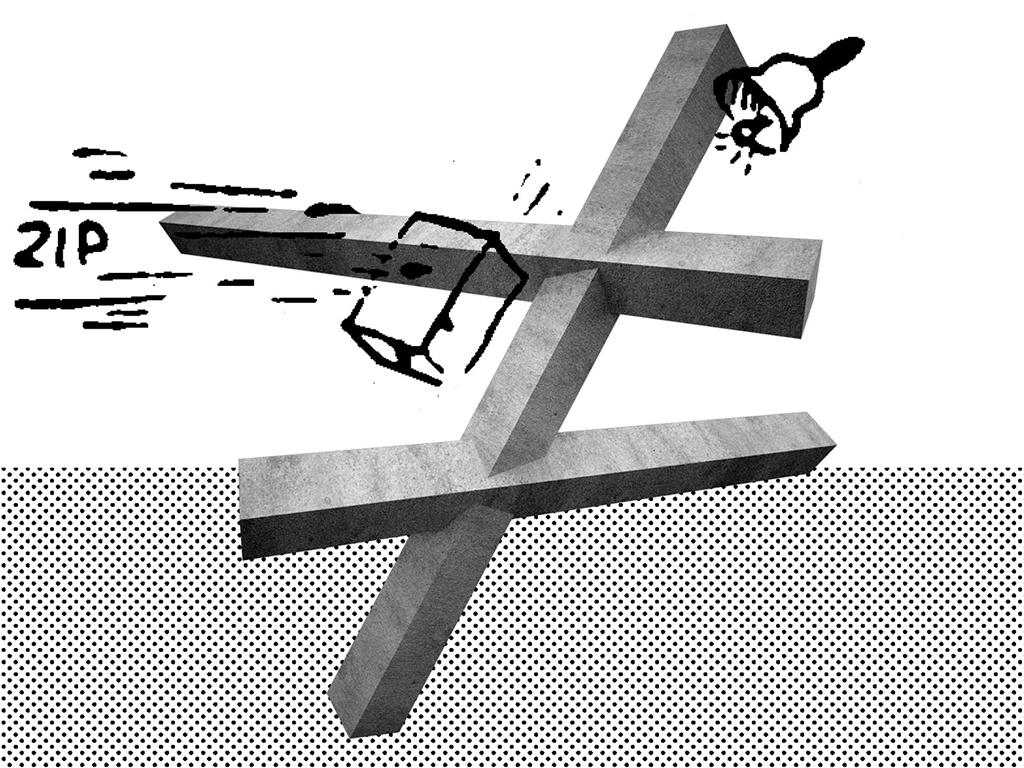One month after the annual Transmediale in Berlin, I feel the urge to look back on the experience. It took some time to digest the dense programme, that was divided along four thematic lines: Anxious to Make, Anxious to Share, Anxious to Secure & Anxious to Act. It consisted of over 80 sessions and brought together hundreds of artists, researchers, curators, hackers and designers keen to reflect how the world is transforming under the technological changes that have hit us over the past forty years or more.
To many of the speakers, the world we find ourselves in now is a paradoxical place. Many of the ideals that the techno-optimists had — a world full of avid makers; valuing access to mobility, tools and content over ownership; connected 24/7; all knowledge at our fingertips — has become a reality. Maker spaces, sharing platforms, Wikipedia, social networks, free intercontinental video calls, alternative currencies and the networked, ‘thinking’ things are omnipresent. The number of participating people is, albeit quite skewed in geographic and socio-economical terms, huge and growing fast, and in many countries kids learn how to programme and make from early days on. But when we look outside, away from our screens and into brick-and-mortar reality, this has not brought the utopia that many of us wanted, and some even predicted. Far from it.
Make
The celebrated maker culture faces many urgent questions. By producing cheap, mainly plastic and overly ugly products, it adds to the ever-growing pile of rubbish. Not everybody turned into a skilled designer and work-bencher overnight; so who is actually designing the stuff, who can change it, who can produce it? We don't see a more responsible use of material, no less shipping of raw materials across the globe, no less waste produced. When we trace the genealogy of “making”, there have been many examples in the past where people started doing things themselves – often of dire necessity, the lucky few as a luxury – and never before with the transformational effects that people would have hoped for. So why should maker culture make a big dent now?
Share
The sharing economy faces similar questions. Relationships get monetized; we used to borrow our neighbours’ car and now we rent it. With just a few monopoly services like Uber and AirBnB able to get to global reach, they overtake the market, reap off (future) profits, and will induce tariff races to the bottom. While these services are “revolutionizing” markets, the labour conditions and security associated with low and middle income jobs decline swiftly, as do tax payments. With nothing in return, except cheaper prices for those able to afford the services anyway. When people use them and save money, it is often spent somewhere else — eg. in more travel, more goods, more waste.
Security
The “security” situation is especially dire. Security is sold to the people as a necessary sacrifice: more security can only be ‘bought’ by diminishing public freedoms. However, there is no certainty in security; it lives on fears that are brought up and deepened by governments that impose increasingly stringent controls on society, thereby violating the human rights that they were supposed to protect. Any breach will call for more sacrifices; breaches are bound to come up – and there is no reasonable way to bring this iron logic to a halt. Meanwhile billions are made by the security-industrial complex.
I could go on – but these three examples would probably suffice to demonstrate that the general picture presented at Transmediale was rather bleak. So: what to do?
Solutions?
The first solution presented was in enhancing education. Not to teach people to become better makers, or better at using the internet, but to become better people. To teach them how to assess the causes and effects of the new practices and technologies; to encourage a playful yet inquisitive attitude; to help them to understand the politics beyond the shiny surfaces of our mobile gadgets and services.
Another solution presented was to develop better, more ethically sound and value driven technologies. A lot of words were spent on the Blockchain — the decentralized ledger that will outlive Bitcoin by orders of magnitude.
Some speakers encouraged was civil disobedience. Whistleblowing like Snowden, Manning and others did is generally in high esteem (and rightly so). Think of the seminal work of Max Schrems overthrowing Safe Harbour — who showed that one committed (wo)man can change legislation. I was also caught by the term ‘disnovation’: serious attempts of hackers and designers to subvert the dominant innovation logic, offering radically different models of operation.
Panic room
Finally, and probably foremost, Transmediale offered with its Panic Room sessions (Imbalanced Technology, Post-Digital Anxiety and Market Uncertainty) elaborate spaces for sustained, deep, and open exchanges of thoughts by well-curated panels. Not to present self-imposed truths or show off the egos of its invited speakers, but to share questions, vulnerabilities, weak signals, and generally admit to being uncertain, opening up the floor to feeble, intricate constructions of new thoughts and in some cases even answers.
IRL, too many discussions are lost by oversimplification, overgeneralization, and overly repeating the same established, but often unfounded ‘truths’. It is precisely that which Transmediale tried to forgo, and thereby inspire deliberative practices that should be cherished and repeated. To possibly resolve the paradoxes of our successful, but bleak post-industrial world and find our way out of the paradoxes it has brought to us.
